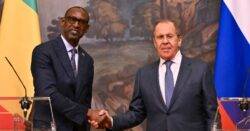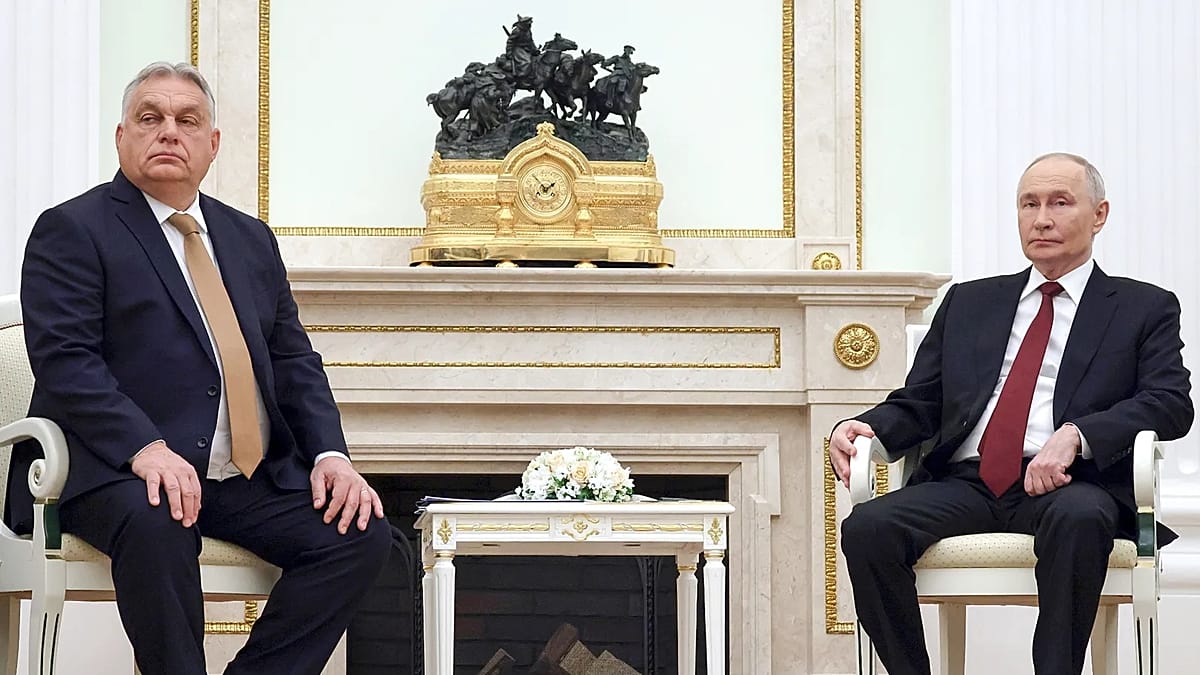Russian Foreign Minister Sergei Lavrov and his Malian counterpart Abdoulaye Diop (Picture: Getty Images)
Ministry of Defence officials unwittingly sent emails containing classified information to a Kremlin ally.
The email mishap, first reported by The Times, saw officials email Mali instead of the US military.
Rather than emailing the military’s ‘.mil’ domain, officials missed out the ‘i’ so typed ‘.ml’, the country identifier for the West African nation.
While the contents of the ‘small number of emails’ didn’t contain any information that could jeopardize national security, officials have launched an investigation.
‘We have opened an investigation after a small number of emails were mistakenly forwarded to an incorrect email domain,’ an MoD spokesman said.
‘We are confident they did not contain any information that could compromise operational security or technical data.’
Russian President Vladimir Putin insisted at the Russia-Africa summit that upheavals in the global food supply chain are down to the West (Picture: AFP)
The email servers used are under lock and key, the spokesman stressed, being ‘designed to minimise the risk of misdirection’.
‘The MoD constantly reviews its processes and is currently undertaking a programme of work to improve information management, data loss prevention, and the control of sensitive information,’ they added.
British defence officials aren’t the only ones mistakenly emailing Mali. For over 10 years, millions of emails associated with the US military have ended up in the country’s inbox.
The Financial Times reported last month that the ‘typo leak’ has seen highly sensitive information – from diplomatic and medical documents to passwords and travel itineraries – sent to the ‘.ml’ email domain.
Johannes Zuurbier, a Dutch internet entrepreneur who was contracted to manage Mali’s country domain, repeatedly raised the issue to Washington.
He claimed that in January alone, he intercepted some 117,000 misdirected emails, many sent by military starters, travel agents, US intelligence officials and others.
Mali is one of six African countries promised free grain shipments over the next four months by Russian President Vladimir Putin yesterday.
Western hypocrisy, Putin told attendees of the Russia-Africa summit in St. Petersburg, was to blame for food supply chain issues, not its war with Ukraine.
Though, not as many African leaders heard Putin talk compared to the first summit in 2019, with only 17 heads of state showing their faces.
It came days after Moscow terminated its agreement that allowed Ukraine to export its grain – that helps feed millions around the world – by sea despite Russia’s naval blockade.
Russia, Africa’s largest arms dealer, has long enjoyed ties with Mali. Russia was Mali’s largest arms supply from 2017 to 2021, according to a study by the Stockholm International Peace Research Institute.
Wagner, the private and briefly mutinous mercenary group, has also burrowed deep into Mali.
The UN has accused Wagner mercenaries of committing war crimes and crimes against humanity, many against civilians, independent experts enlisted by the UN Human Rights Council said in January.
‘We are particularly worried by credible reports that over the course of several days in late March 2022, Malian armed forces accompanied by military personnel believed to belong to the Wagner Group, executed several hundred people, who had been rounded up in Moura, a village in central Mali,’ the UN experts said.
The Malian government has been contacted for comment.
Get in touch with our news team by emailing us at webnews@metro.co.uk.
For more stories like this, check our news page.
They missed out an ‘i’.





